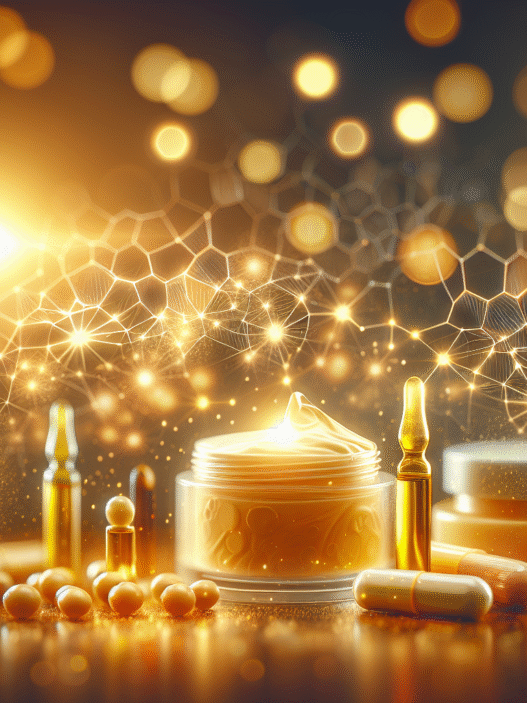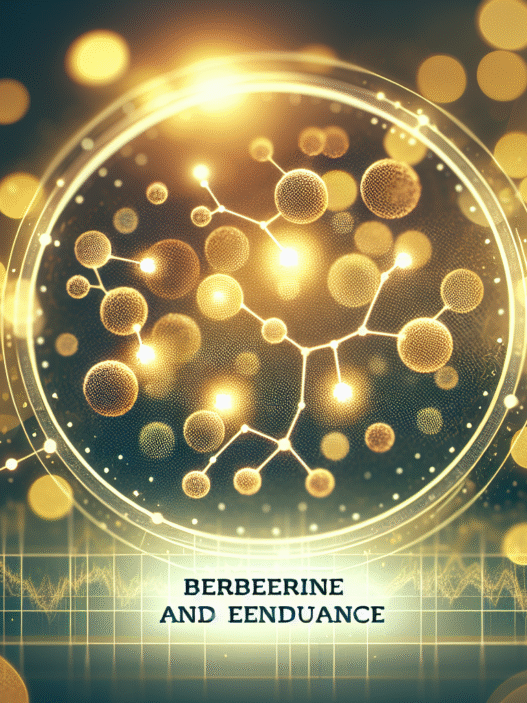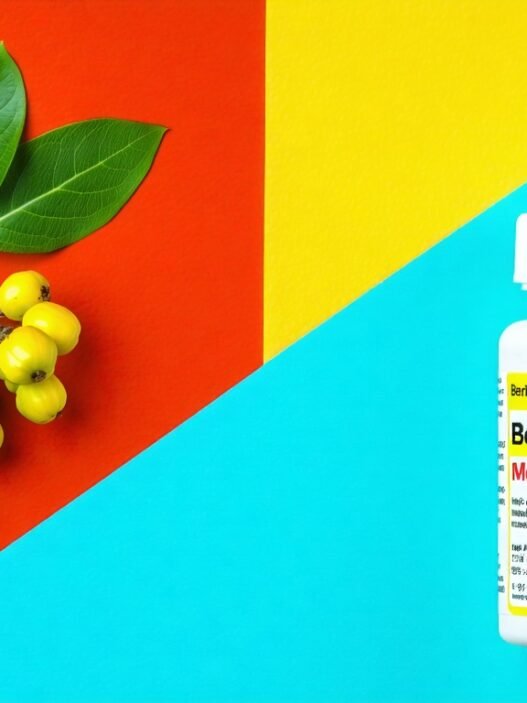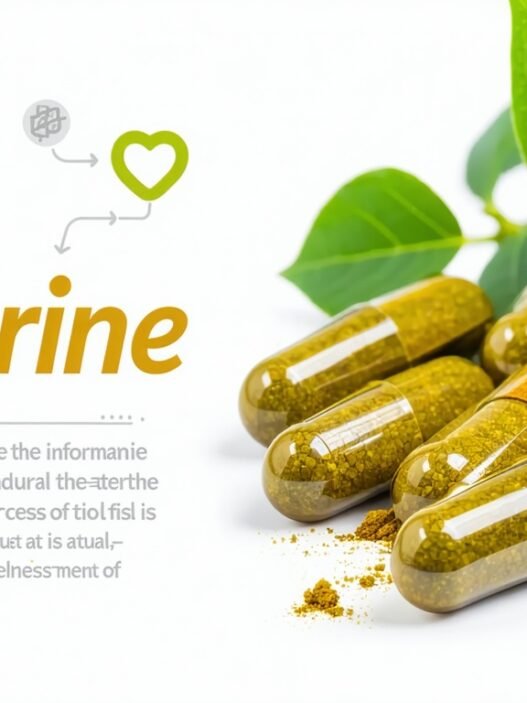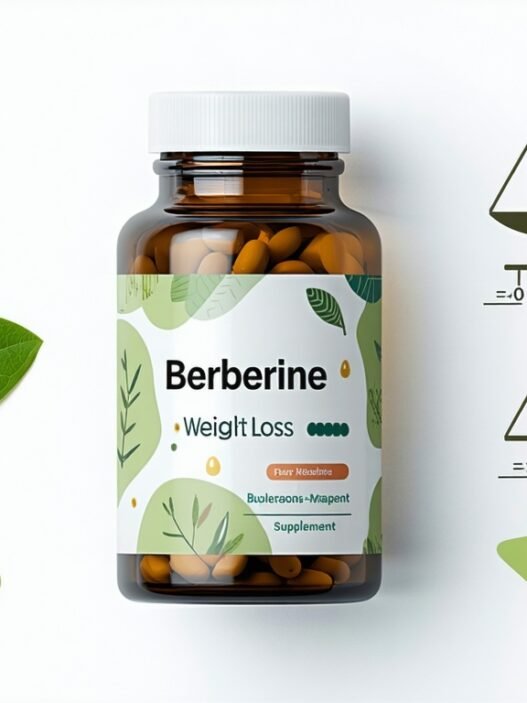Berberine and Senescence Overview
Effects on Cellular Aging
Berberine has shown promising results in extending cellular lifespan and improving the characteristics of senescent cells. In studies involving human fetal lung diploid fibroblasts (2BS and WI38), berberine extended the replicative lifespan, improved cell morphology, and boosted rejuvenation markers associated with cellular senescence. This compound successfully reduced the rate of senescence-associated β-galactosidase (SA-β-gal)-positive cells by approximately 72% in late population doubling cells grown in a berberine-containing medium.
The action of berberine in ameliorating cellular senescence includes the down-regulation of p16 and the up-regulation of cyclin D1 and CDK4. These changes foster a cellular transition from the G1 to the S phase during early mitosis, facilitating improved cell growth and proliferation.
| Cellular Aging Effect | Result |
|---|---|
| Rate of SA-β-gal-positive cells (berberine-treated) | ~72% lower |
| Effect on p16, cyclin D1, CDK4 | Down-regulation of p16, Up-regulation of cyclin D1 and CDK4 |
Mechanisms of Action
The mechanisms underlying berberine’s effectiveness against cellular aging demonstrate its ability to promote entry into the cell cycle, particularly from G0 or G1 phase to S/G2-M phase. This transition is critical for improving cell growth and proliferation. Additionally, berberine has exhibited efficacy in reducing senescence induced by doxorubicin, a chemotherapeutic agent, in vitro. In animal studies, it alleviated doxorubicin-induced weight loss and reduced coordination impairment (Aging Cell).
This highlights berberine’s potential as a therapeutic option for mitigating cell aging and improving the effects of cytotoxicity resulting from chemotherapy. The mechanisms through which berberine acts provide insight into its role in promoting cellular rejuvenation and overall health.
| Mechanism | Description |
|---|---|
| G0/G1 to S/G2-M transition | Promotes improved cell growth and proliferation |
| Reduction of doxorubicin-induced senescence | Alleviates negative impacts of chemotherapeutic agents |
For more insights on the benefits of berberine, explore our article on berberine benefits and its implications for other health areas, including berberine and gut health and berberine and autophagy.
Berberine Benefits
Lifespan Extension in Model Organisms
Research indicates that berberine has significant potential to extend lifespan in various model organisms. Notably, studies have shown that berberine can prolong the lifespan of chemotherapy-treated mice by approximately 52% and naturally aged mice by about 16.49%. Additionally, the residual lifespan of naturally aged mice saw an increase of 80%, extending from an average of 85.5 days to 154 days (Aging Cell).
The effects of berberine are not limited to mere lifespan extension; it also enhances overall health span in these animals. For instance, oral administration of berberine improved health span and observed enhancements in fur density and behavioral activity, marking it as a promising candidate for anti-aging therapies (PubMed).
| Model Organism | Lifespan Extension (%) | Health Span Improvement |
|---|---|---|
| Chemotherapy-treated Mice | ~52% | Yes |
| Naturally Aged Mice | ~16.49% | Yes |
Improvement of Cell Growth and Proliferation
Berberine also demonstrates considerable effects on cell growth and proliferation. It has shown to decrease the senescent phenotype in cells, such as A549 cells experiencing premature cellular aging. At concentrations as low as 5 μM, berberine significantly reduces the senescent characteristics of these cells. This effect is primarily achieved by attenuating the mTOR/S6 signaling pathways, leading to decreased phosphorylation of the ribosomal S6 protein.
Through its influence on cell growth, berberine aids in rejuvenating cells and promoting healthier cellular functions. The ability to influence cellular aging markers positions berberine as a critical element in anti-aging research.
| Concentration of Berberine (μM) | Effect on Senescence |
|---|---|
| 5 μM | Significant reduction in senescence markers |
| Higher concentrations | Enhanced effects on cell proliferation |
Berberine’s multifaceted benefits highlight its potential for extending lifespan and improving cell growth, making it an important focus for those interested in berberine and senescence. For a deeper dive into berberine’s advantages, explore our article on berberine benefits.
Berberine and Cellular Rejuvenation
Reversal of Senescence Markers
Berberine has demonstrated a remarkable ability to reverse certain markers of cellular senescence. Research shows that when senescent cells are cultivated in berberine-containing mediums, the rates of senescence-associated β-galactosidase (SA-β-gal)-positive cells in late population doubling are approximately 72% lower compared to control groups (Aging Cell). This suggests that berberine actively rescues and rejuvenates aging cells, contributing to their functional recovery and longevity.
Additionally, berberine influences several key proteins involved in cell aging. It down-regulates p16, which is known to promote senescence, while up-regulating cyclin D1 and CDK4. This modulation facilitates the transition from the G1 phase to the S phase of the cell cycle during early mitosis, promoting better cell cycle progression.
Promotion of Cell-Cycle Progression
The efficacy of berberine in promoting cell-cycle progression has been well-documented. Specifically, it facilitates the transition of human diploid fibroblasts from dormant states (G0) or initial growth phases (G1) into active phases (S/G2-M). This is critical for sustaining cellular growth and proliferation.
In studies involving human fetal lung diploid fibroblasts (2BS and WI38), berberine not only extended the replicative lifespan but also improved cell morphology and rejuvenation markers. This further highlights berberine’s potential in enhancing cellular vitality and longevity. Additionally, in experimental settings, berberine was shown to reduce doxorubicin-induced senescence, alleviating adverse effects such as weight loss and coordination issues in accelerated aging mouse models. Remarkably, it extended the median lifespan of these models by approximately 52%.
These findings illustrate that berberine acts not only as a cellular rejuvenator but also as a promising candidate in the quest for longevity and improved health outcomes in senescent cells. For more information on the benefits and applications of berberine, refer to our article on berberine benefits and how it can impact lifespan and vitality.
Practical Applications of Berberine
Berberine has garnered attention for its potential applications in the realm of health, particularly in anti-aging and oncology. This section explores how berberine acts in promoting skin health and mitigating side effects from chemotherapy.
Anti-aging Potential in Skin Health
Berberine exhibits promising anti-aging effects on the skin. Research indicates that it prevents TPA-induced ERK activation, which helps to minimize inflammation and degradation of extracellular matrix proteins. This characteristic is crucial for maintaining skin structure and elasticity. Studies have shown that berberine reduces MMP-1 expression, which is associated with skin degradation, and increases type I procollagen expression in human dermal fibroblasts.
The table below summarizes key findings on berberine’s effects on skin health:
| Effect | Description |
|---|---|
| Reduces MMP-1 Expression | Decreases skin degradation |
| Increases Type I Procollagen | Promotes skin structure |
| Prevents ERK Activation | Minimizes skin inflammation |
Incorporating berberine into skin health regimens may provide protective benefits against the visible signs of aging. Individuals interested in berberine for skin health may find this compound to be a worthwhile addition to their anti-aging strategies.
Mitigation of Chemotherapy Side Effects
Berberine also shows efficacy in mitigating the side effects associated with chemotherapy. In particular, it has been studied for its protective effects against doxorubicin-induced senescence both in vitro and in vivo. Berberine regulates the expression of crucial proteins such as p16, cyclin D1, and CDK4, promoting positive cell-cycle progression and ameliorating cellular senescence (Aging Cell).
In experiments, berberine demonstrated the ability to alleviate doxorubicin-induced loss in body weight and reduction in coordination in mice. These findings suggest that berberine could be beneficial as an adjunct treatment for those undergoing chemotherapy, potentially enhancing their quality of life during treatment.
The table below highlights the impact of berberine on chemotherapy-induced effects:
| Chemotherapy Side Effect | Berberine Effect |
|---|---|
| Loss of Body Weight | Reduces loss |
| Reduction in Coordination | Improves coordination |
| Cellular Senescence | Alleviates aging markers |
Individuals looking into berberine supplements or considering alternative therapies during chemotherapy may benefit from understanding berberine’s potential protective roles.
These applications showcase berberine’s versatility in addressing both skin aging and cancer treatment side effects, reinforcing its position as a significant compound of interest in holistic health and wellness.
Berberine and Mitochondrial Health
Impact on Mitochondrial Dysfunction
Berberine has shown promising effects on mitochondrial health, particularly in the context of aging and senescence. It suppresses gero-conversion—a process where cells transition from cell cycle arrest to senescence. This suppression occurs through the inhibition of mTOR/S6 signaling, which is essential for cell survival and growth. Berberine localizes within mitochondria, inhibits the respiratory electron chain, and activates AMPK (AMP-activated protein kinase), ultimately leading to decreased cellular aging markers and improved metabolic health.
Research indicates that berberine’s effects are notable even at low concentrations, such as 5 μM, which significantly decreases the senescent phenotype in cells undergoing premature aging. This effect arises from the attenuation of mTOR/S6 signaling and a reduction in the phosphorylation levels of ribosomal S6 protein (rpS6) (Aging-US).
The following table summarizes berberine’s impact on rpS6 phosphorylation in A549 cells:
| Treatment Time | rpS6 Phosphorylation Reduction (%) |
|---|---|
| 0 hours | 0% |
| 12 hours | 30% |
| 24 hours | 59% |
Regulation of Aging Signaling Pathways
Berberine plays a significant role in regulating various aging signaling pathways, including those invovled in cellular senescence. It has been shown to down-regulate the expression of p16, cyclin D1, CDK4, and RB proteins, all of which are critical regulators of the cell cycle. This regulatory action can promote cell-cycle progression, ameliorating cellular senescence (Aging Cell).
Additionally, berberine mitigates age-related cellular changes by targeting signaling pathways associated with oxidative stress and inflammation. By influencing these pathways, berberine has been linked to extending lifespan and enhancing overall cellular health.
For more comprehensive insights on the benefits of berberine, explore our articles on berberine benefits and berberine anti-aging effects. The findings suggest a potential role for berberine in supporting mitochondrial function and combating age-associated decline.
Berberine vs. Other Natural Compounds
When examining natural compounds for their anti-aging effects, berberine stands out among well-known options such as resveratrol and curcumin. Each of these substances has unique properties that contribute to overall health, but their mechanisms of action and effectiveness in promoting longevity and cellular health may differ.
Comparison to Resveratrol and Curcumin
| Compound | Primary Benefits | Unique Mechanisms | Clinical Trials |
|---|---|---|---|
| Berberine | Lifespan extension, anti-aging effects | Attenuates cellular senescence and enhances locomotor activity | Yes, in Drosophila melanogaster (particularly) NCBI |
| Resveratrol | Antioxidant, cardioprotective | Alters expression of microRNAs, induces apoptosis PubMed Central | Over 110 clinical trials PubMed Central |
| Curcumin | Anti-inflammatory, longevity-promoting | Suppresses cell growth, promotes apoptosis PubMed Central | Several less extensive studies |
Berberine has been shown to effectively expand lifespan in model organisms, such as female Drosophila melanogaster, by attenuating premature cellular senescence. This distinguishes it from both curcumin and resveratrol, which primarily focus on antioxidant effects. Although resveratrol has been widely studied in numerous clinical trials for its potential benefits, berberine’s specific impact on stimulating locomotor activity and altering health indicators in experimental settings highlights its unique position among anti-aging compounds.
Unique Anti-aging Properties
Berberine exhibits certain anti-aging effects on skin health, making it distinct from both curcumin and resveratrol. Studies suggest that berberine prevents TPA-induced ERK activation and reduces MMP-1 expression, showcasing its specific benefits in promoting skin vitality and longevity (NCBI).
Beyond skin benefits, berberine’s multifaceted action could enhance overall cellular rejuvenation by influencing various metabolic pathways and reducing oxidative stress. For a comprehensive understanding of these effects, you can explore additional insights into berberine anti-aging research.
In summary, while resveratrol and curcumin are recognized for their antioxidant properties and broad applicability, berberine offers unique advantages related to cellular senescence and longevity, making it a valuable consideration for those interested in holistic wellness and anti-aging strategies. For those curious about the specific benefits of berberine, including its influence on blood pressure, gut health, and other health indicators, refer to our detailed sections on berberine benefits and berberine supplements.














